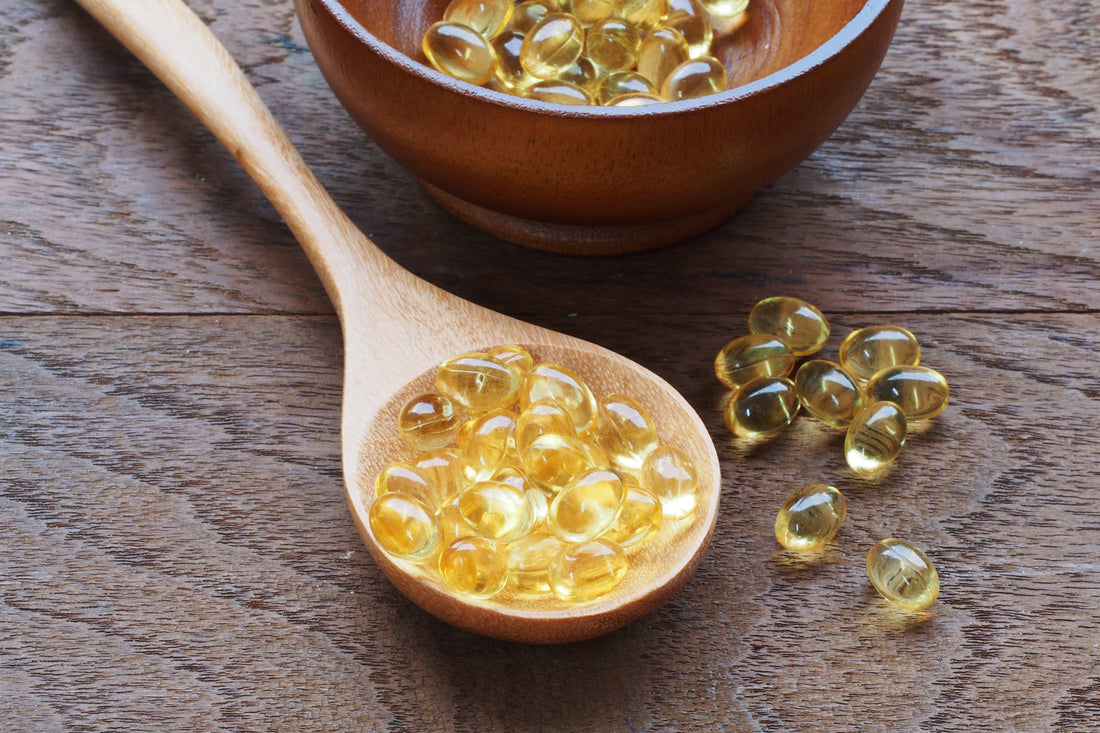

Eight Weeks of Fish Oils Reduce Muscle Damage
Table of Contents
| Eight Weeks of Fish Oils Reduce Muscle Damage |
By: Robbie Durand
There are two classes of essential fatty acids, the omega six fatty acids (Ω-6) and omega three fatty acids (Ω-3). Increased consumption of EPA and DHA is also believed to lower the risk of cancer, hyperlipidemia, hypertension, and neurodegenerative diseases. Ω-3 FA found primarily in fatty fish with high oil content, consists of both eicosapentaenoic acid (EPA) and docosahexaenoic acid (DHA). Research has shown increasing evidence for anti-inflammatory, antithrombotic, antiarrhythmic and antiatherogenic effects of Ω-3 FA. Numerous observational studies have shown that Ω-3 FA enriched diets are associated with a reduction in cardiovascular mortality, myocardial infarction, and sudden death.
Omega 3 Fatty Acids and Heart Disease
Higher fish intake is associated with decreased incidence of coronary artery disease and cardiovascular mortality in several prospective cohort studies. Another large prospective cohort study reported a marked reduction in sudden cardiac death associated with dietary fish intake. Putting it in perspective, a minimum of one fish meal a week was associated with a 52% reduction in sudden cardiac death. Fish that is especially rich in the beneficial oils known as omega-3 fatty acids include mackerel, tuna, salmon, sturgeon, mullet, bluefish, anchovy, sardines, herring, trout, and menhaden. They provide about 1 gram of omega-3 fatty acids in about 3.5 ounces of fish. One issue with the consumption of fish has been the growing concern of mercury toxicity.

| Fish and Mercury Toxicity |
Human mercury (Hg) exposure from seafood consumption and its attendant risks are difficult to estimate and are often the subject of intense debate. However, all seafood also contains Hg, primarily in the form of methylmercury (MeHg). In sufficient doses, MeHg can cause adverse neurodevelopmental, cardiovascular, and immunological health effects. Supplementation can be considered as an alternative to dietary intake for persons who are averse to a fish-enriched diet and may also be lower in mercury content and other environmental pollutants. A recent meta-analysis launched by the Agency for Health Care Research and Quality found favorable effects of fish oil on cardiovascular and overall mortality. With this mounting evidence, the American Heart Association recommends 1 g of fish oils in all patients with documented coronary artery disease via diet or through supplementation.
Fish Oils Have Been Found to:
-May reduce the risk of coronary heart disease
-Help maintain healthy cholesterol and blood pressure
-Promotes joint, brain and skin health
-Supports the body’s natural anti-inflammatory response
Many athletes have protein, creatine, and a pre-workout, but many athletes may be forgetting about a very useful supplement: Fish Oils. Incorporating Omega 3 fatty acids may be another useful supplement to include an athletes supplement regimen as so far evidence supports omega 3 fatty acids for muscle recovery, body composition, and even brain health.
Fish Oils Increase Fat Burning Genes
The incorporation of omega 3 fatty acids has been associated with increases in fat burning enzymes. Transcription of several genes involved in fat metabolism is also influenced by fish oil ingestion such as carnitine palmitoyltransferase, fatty acid-binding proteins, fatty acid transporter and fatty acyl-CoA sythetase, and malonyl-CoA. Exercise studies show an additive relationship between exercise and fish oil, with the combination of both showing the most preferential changes in body composition. Body composition is another interesting area. A 2010 study published in the Journal of the International Society of Sports Nutrition found that supplementing with 4 g of fish oil daily for six weeks (1600 mg EPA and 800 mg DHA) improved body composition by significantly increasing lean mass by 1.1–2.2 lb and decreasing fat mass by 1.3%. Another interesting finding was the researchers found a strong correlation between lower salivary cortisol levels with omega 3 fatty acid supplementation.

|
Fish Oil Increases Fat Oxidation Some studies have investigated the influence of fish oil on energy metabolism during exercise. One of these has shown a definite increase in fat oxidation during exercise after 4 g/d of fish oil supplementation for three weeks. In this protocol, participants were studied during running at 60% VO2max, under six conditions: (1) in the postabsorptive state; (2) following a high-fat meal; (3) following a high-fat meal supplemented with fish oil; (4 – 6) as in the first three trials, but after chronic supplementation. The energy contribution from fat, estimated by indirect calorimetry, increased by approximately 10 % post-supplementation. Additionally, the researchers found a tendency for enhanced fat oxidation (by roughly 7%) and reduced metabolic glucose disappearance during cycling at 60 % VO2max with fish oil supplementation. |
Eight Weeks of Fish Oils Reduce Muscle Damage
Previous studies have reported fish oil supplementation to reduce exercise-induced muscle soreness and review markers of muscle damage. In a review article, it has been suggested that an ingestion ratio of EPA to DHA of approximately 2:1 may be beneficial in counteracting exercise-induced inflammation for maximal eccentric exercise.
Researchers wanted to examine the impact of larger doses of fish oils (400–2000 mg/day EPA and 200–1000 mg/day DHA (ratio of EPA to EHA is approximately 2:1)) for reducing the damaging effects of eccentric exercise. Twenty-four healthy men were randomly assigned to consume the EPA + DHA supplement or placebo by the double-blind method. Participants consumed EPA + DHA or placebo supplement for eight weeks before exercise and continued it until five days after exercise. The EPA group consumed EPA + DHA-rich fish oil containing 600 mg EPA and 260 mg DHA per day. Subjects performed five sets of six maximal eccentric elbow flexion exercises. At the end of the study, maximal voluntary contractions were significantly higher in the fish oils group than in the placebo group at 2–5 days after exercise. The range of motion was also significantly greater in the fish oils group than in the placebo group as well, meaning that they had less muscle inflammation and soreness. At only three days after exercise, muscle soreness was significantly greater in the placebo group than in the fish oils group, with an increase in the inflammatory protein (serum IL-6) levels in the placebo group. The present study demonstrates that the group with EPA and DHA acids-rich fish oil supplementation reduces strength loss after muscle damaging exercise. The supplementation also reduced muscle soreness. In summary, the study investigated the efficacy of 8 weeks fish oil supplementation in reducing muscle damage following eccentric contractions. The results showed that 600 mg/day EPA and 260 mg/day DHA supplementation attenuated the reduction of muscle strength and limited range of motion. In addition to the many health benefits of fish oils, this recent study also demonstrates some potent anti-inflammatory effects on muscle similar to that of over the counter non-steroidal anti-inflammatory meds.
 Fish oil supplementation has a plausible rationale for influencing substrate metabolism. A handful of studies has shown trends and/or significant increases in lipid utilization during exercise with fish oil supplementation. Based on the available literature, increasing fish oil intake modestly (to around 4g/d) is of detriment to athletes (recreational or elite) and may provide some benefits to fat metabolism alongside other health outcomes. Some of the recent studies seem to indicate fish oils may enhance anabolic activity.
Fish oil supplementation has a plausible rationale for influencing substrate metabolism. A handful of studies has shown trends and/or significant increases in lipid utilization during exercise with fish oil supplementation. Based on the available literature, increasing fish oil intake modestly (to around 4g/d) is of detriment to athletes (recreational or elite) and may provide some benefits to fat metabolism alongside other health outcomes. Some of the recent studies seem to indicate fish oils may enhance anabolic activity.
| Tsuchiya Y, Yanagimoto K, Nakazato K, Hayamizu K, Ochi E. Eicosapentaenoic and docosahexaenoic acids-rich fish oil supplementation attenuates strength loss and limited joint range of motion after eccentric contractions: a randomized, double-blind, placebo-controlled, parallel-group trial. Eur J Appl Physiol. 2016 Apr 16. |
Mickleborough TD (2013) Omega-3 polyunsaturated fatty acids in physical performance optimization. Int J Sport Nutr Exerc Metab 23:83–96
Harris WS, Connor WE, Alam N, et al. (1988) Reduction of postprandial triglyceridemia in humans by dietary n-3 fatty acids. J Lipid Res 29, 1451 – 1460.
Herzberg GR & Rogerson M (1989) The effect of dietary fish oil on muscle and adipose tissue lipoprotein lipase. Lipids 24, 351 – 353.
Jang IS, Hwang DY, Chae KR, et al. (2003) Role of dietary fat type in the development of adiposity from dietary obesity-susceptible Sprague – Dawley rats. Br J Nutr 89, 429 – 438.
Clarke SD (2000) Polyunsaturated fatty acid regulation of gene transcription: a mechanism to improve energy balance and insulin resistance. Br J Nutr 83, Suppl. 1, S59 – S66.
Price PT, Nelson CM & Clarke SD (2000) Omega-3 polyun- saturated fatty acid regulation of gene expression. Curr Opin Lipidol 11, 3 – 7.
Baillie RA, Takada R, Nakamura M, et al. (1999) Coordinate induction of peroxisomal acyl-CoA oxidase and UCP-3 by dietary fish oil: a mechanism for decreased body fat deposition. Prostaglandins Leukot Essent Fatty Acids 60, 351 – 356.
Clarke SD (2001) Polyunsaturated fatty acid regulation of gene transcription: a molecular mechanism to improve the metabolic syndrome. J Nutr 131, 1129 – 1132.
Dangardt F, Osika W, Chen Y, et al. (2010) Omega-3 fatty acid supplementation improves vascular function and reduces inflammation in obese adolescents. Atherosclerosis 212, 580 – 585.
Delarue J, Couet C, Cohen R, et al. (1996) Effects of fish oil on metabolic responses to oral fructose and glucose loads in healthy humans. Am J Physiol Endocrinol Metab 270, E353 – E362.
Couet C, Delarue J, Ritz P, et al. (1997) Effect of dietary fish oil on body fat mass and basal fat oxidation in healthy adults. Int J Obes Relat Metab Disord 21, 637 – 643.
Smith BK, Sun GY, Donahue OM, et al. (2004) Exercise plus n-3 fatty acids: additive effect on postprandial lipemia. Metabolism 53, 1365 – 1371.
Hill AM, Buckley JD, Murphy KJ, et al. (2007) Combining fish-oil supplements with regular aerobic exercise improves body composition and cardiovascular disease risk factors. Am J Clin Nutr 85, 1267 – 1274.
Huffman DM, Michaelson JL & Thomas TR (2004) Chronic supplementation with fish oil increases fat oxidation during exercise in young men. J Exerc Physiol Online 7, 48–56.
Delarue J, Labarthe F & Cohen R (2003) Fish-oil sup- plementation reduces stimulation of plasma glucose fluxes during exercise in untrained males. Br J Nutr 90, 777 – 786.
Boss A, Lecoultre V, Ruffieux C, et al. (2010) Combined effects of endurance training and dietary unsaturated fatty acids on physical performance, fat oxidation and insulin sensitivity. Br J Nutr 103, 1151 – 1159.
Whitehouse AS, Tisdale MJ. Downregulation of ubiquitin-dependent proteolysis by eicosapentaenoic acid in acute starvation. Biochem Biophys Res Commun. 2001 Jul 20;285(3):598-602.
Baar K, Esser K. Phosphorylation of p70(S6k) correlates with increased skeletal muscle mass following resistance exercise. Am J Physiol 1999;276:C120–7.
O’Neil TK, Duffy LR, Frey JW, Hornberger TA. The role of phosphoinositide 3-kinase and phosphatidic acid in the regulation of mammalian target of rapamycin following eccentric contractions. J Physiol 2009;587:3691–701.
Bodine SC, Stitt TN, Gonzalez M, et al. Akt/mTOR pathway is a crucial regulator of skeletal muscle hypertrophy and can prevent muscle atrophy in vivo. Nat Cell Biol 2001;3:1014–9.
Smith GI, Atherton P, Reeds DN, Mohammed BS, Rankin D, Rennie MJ, Mittendorfer B. Dietary omega-3 fatty acid supplementation increases the rate of muscle protein synthesis in older adults: a randomized controlled trial. Am J Clin Nutr. 2010 Dec 15.
Li D. Omega-3 polyunsaturated fatty acids and non-communicable diseases: meta-analysis based systematic review. Asia Pac J Clin Nutr. 2015;24(1):10-5.
Yanai H, Katsuyama H, Hamasaki H, Abe S, Tada N, Sako A. Effects of Dietary Fat Intake on HDL Metabolism. J Clin Med Res. 2015 Mar;7(3):145-9.
Wang X, Chan CB. n-3 polyunsaturated fatty acids and insulin secretion. J Endocrinol. 2015 Mar;224(3):R97-106.
Kromhout D, Bosschieter EB, de Lezenne CC. The inverse relation between fish consumption and 20-year mortality from coronary heart disease. N Engl J Med 1985; 312: 1205–9.
Daviglus ML, Stamler J, Orencia AJ, et al. Fish consumption and the 30-year risk of fatal myocardial infarction. N Engl J Med 1997; 336: 1046–53.
Hu FB, Bronner L, Willett WC, et al. Fish and omega-3 fatty acid intake and risk of coronary heart disease in women. JAMA 2002; 287: 1815–21.
Albert CM, Hennekens CH, O’Donnell CJ, et al. Fish consumption and risk of sudden cardiac death. JAMA 1998; 279: 23–8.
Albert CM, Campos H, Stampfer MJ, et al. Blood levels of long-chain n-3 fatty acids and the risk of sudden death. N Engl J Med 2002; 346: 1113–8.
Oh R. Practical applications of fish oil (Omega-3 fatty acids) in primary care. J Am Board Fam Pract. 2005 Jan-Feb;18(1):28-36. Review.
MUSCLE MEDIA MAGAZINE FOR MEN
The premier source of training, nutrition, supplements, fat loss and health for men.

















